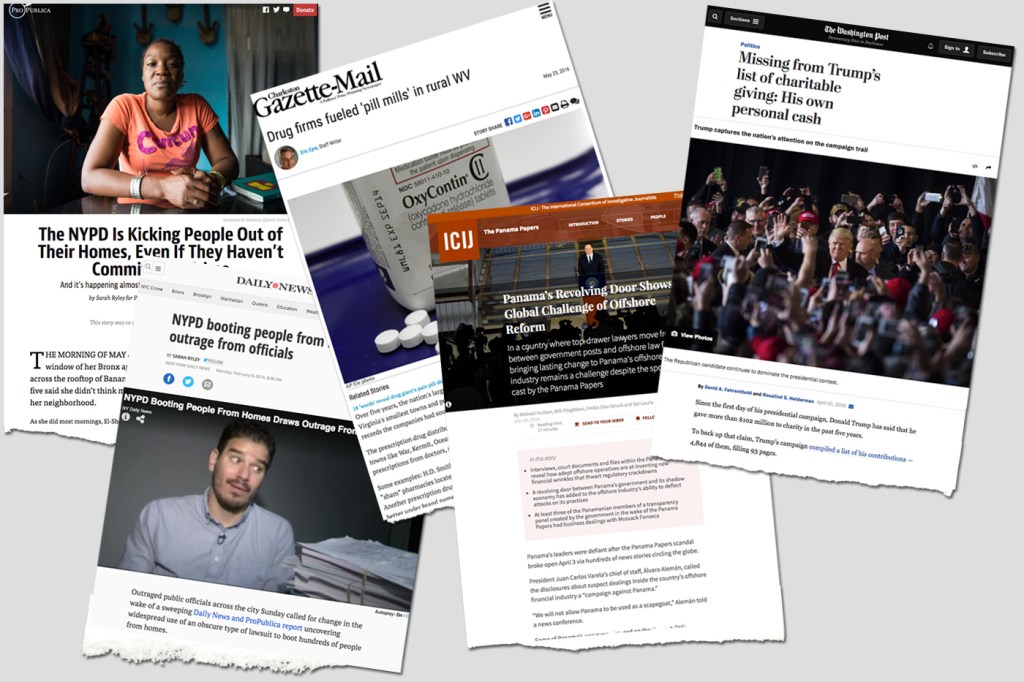Pulitzers reward persistence, collaboration, local reporting in 2016

Each year, the Pulitzer Prizes reward some of the best work in journalism. This year’s winners, announced last month, include small local newspapers, nonprofit news organizations, and massive collaborative ventures, as well as staid industry bastions like The Washington Post and The New York Times.
The variety of winners, as well as the innovative reporting methods utilized to tell important stories, signal what the future of journalism may look like, said Jonathan Kaufman, director of Northeastern’s School of Journalism and a Pulitzer winner himself. One thing has remained true throughout the years, however. “The Pulitzers inspire great work,” Kaufman said. “That is one of their most important functions.”
Based on the Pulitzer Prize winners this year, what sort of work is being rewarded?
Like the Oscars and the Nobel prizes, the Pulitzers reward outstanding work but also send a message about where the judges think the industry should be going. In this case, you see some important signals being sent—David Fahrenthold of The Washington Post won for an investigation of President Donald J. Trump, so the signal is the media should not be cowed by Trump’s attacks. That investigation combined shoe-leather reporting with crowdsourcing via Twitter, so the award also recognizes how journalists can use new tools—like the ones we are teaching our journalism students here at Northeastern—to reveal abuse and hold politicians accountable.
The award for the Panama Papers investigation, which was a global effort of news organizations across the world, signals the growing importance of cooperation among rival news media to tackle the toughest subjects. Perhaps we will see future cross-border efforts to look at global challenges like climate change.
The awards to local papers in West Virginia and Utah signal the continuing importance of local newspapers, which are facing tough times economically but still do vital work—in this case on the opioid crisis and on sexual assault on campus, respectively.
What might we expect from next year’s winners?
Having competed for the Pulitzers myself, I can tell you that it is very hard to “game” the system and figure out what will win. Reporters and editors need to do their best work, take on big and important topics, and deliver them effectively to readers. If they do that, they can be in the running. The Pulitzers inspire great work. That is one of their most important functions.
In an environment where established news organizations are frequently derided as “fake news” by the president and others, what significance does the Pulitzer Prize hold?
It is recognition that the leaders in our field recognize excellent and inspiring work. And readers agree with them. We hear the criticisms, and sometimes they are accurate. The Pulitzers remind everyone that journalism at its best benefits the country, readers, and our democracy. Sit down and read the winning articles and the finalists; you will be blown away—and learn a great deal.
What can we learn about new models of journalism from some of the winners this year, such as Pro Publica and The New York Daily News, which shared the Pulitzer Prize for Public Service?
The Public Service award to Pro Publica and The New York Daily News recognizes the growth of new models of investigative reporting—the nonprofit newsroom that relies on contributions and cooperates with media partners. As more money flows to these nonprofits, they can be another platform for strong investigative reporting.
All in all, the Pulitzers this year recognized excellent work and sent a strong message as to how that work can continue.





